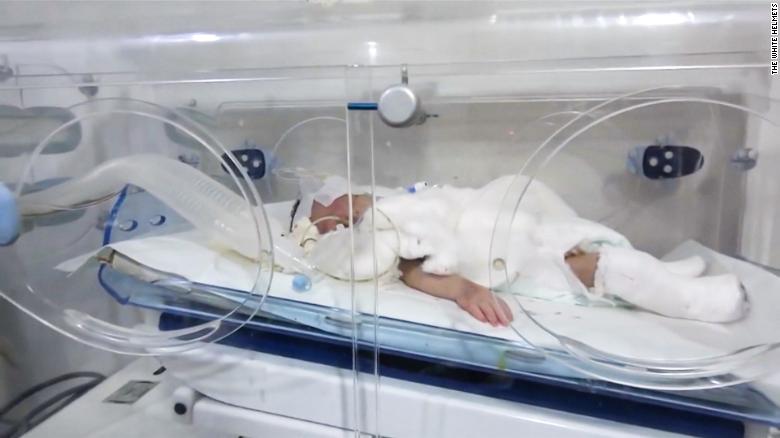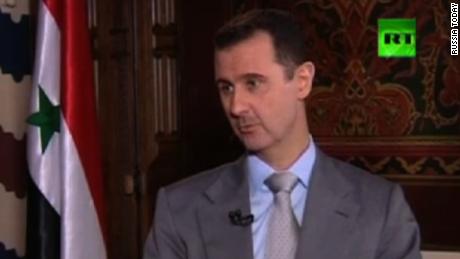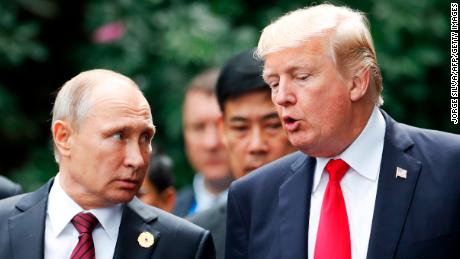Gayle Tzemach Lemmon is a CNN contributor and adjunct fellow at the Council on Foreign Relations. She is the author of "Ashley's War: The Untold Story of a Team of Women Soldiers on the Special Ops Battlefield." The opinions expressed in this commentary are hers.
(CNN)Russia's efforts to sow chaos in the US elections is now well-documented. As is its ability to foment unrest in Ukraine. And Estonia. And Western Europe. And to harm people who defy it, whether at home or in the United Kingdom.
But what is less discussed is Russia's role as instigator-in-chief in Syria. Sitting at the center of the "Axis of Mistrust" ŌĆö Syria's Assad regime, Iran, and, on occasion, Turkey -- Russia is playing all sides of the board and then rearranging the pieces ŌĆö in its own favor. As one writer on the Middle East recently noted, Turkey, Russia and Iran "do not want to allow potential strains among them to work to the United States' advantage, not only in Syria, but in the region as a whole."
If American policymakers are to focus on Russia's efforts to expand its influence, they will have to engage with what Russia is up to in Syria, and the implications in the country and the region. As Turkey attacks the US-backed Kurdish forces in Afrin, the same forces who led the fight against ISIS, Russia is there, viewing the Turkish operation, as one analyst put it, "as a chance to deepen the wedge between the US and Turkey."
In congressional testimony this week, Gen. Joseph Votel, the head of US Central Command, noted that, "Russia does play a role in here; they are trying to instigate tension among partners in the region and then trying to play a role in trying to be an arbiter in that." He added, "I am concerned about this role that Russia plays in northern Syria and how it impacts all our relationships, especially the relationship between US and Turkey."
Russia has been all-in on the side of the Syrian regime from the start of the conflict and its air campaign in Aleppo reshaped facts on the ground. It has blocked close to a dozen UN resolutions condemning the Syrian regime's crimes against civilians, even blocking resolutions that would have allowed humanitarian relief to reach besieged moms and dads trying to pull their children through this hellish conflict. The latest UN effort to stop the bombardment and poisoning of Syrians in Eastern Ghouta ended in a ceasefire that existed only on paper in New York. It failed entirely to take hold on the ground.
As Votel noted of the ceasefire, Russia's "inability to enforce it means either they lack the ability to do that or they are choosing not to do that ... one of the things we do have to do is hold them accountable for the actions they are taking and the humanitarian disaster they are perpetuating."
Indeed, the White House issued an unusual statement this month noting that "between February 24 and 28, Russian military aircraft conducted at least 20 daily bombing missions in Damascus and Eastern Ghouta. ... Pro-regime forces must immediately cease targeting medical infrastructure and civilians as part of the brutal campaign in Eastern Ghouta."
US Ambassador to the UN Nikki Haley warned only this week that the United States would "act" against any nation that "is determined to impose its will through chemical attacks and inhuman suffering, most especially the outlaw Syrian regime." Russian military leaders threatened to strike the United States in Syria if the United States launched strikes against Damascus.
Right now there is no accountability. And the deaths of Russian mercenaries who launched attacks on US and US-backed forces February 7 remain shrouded in mystery. US military leaders say they remained in contact with Russia during the attack and received assurances that Russia wouldn't engage with coalition forces in the Deir el-Zour area. Nevertheless, the mercenaries attacked a US-backed coalition position.
Russia's actions in Syria present a challenge to America: How do you rein in a power that feels no check is in the offing? The first step is to encourage America's leaders to pay attention to reality on the ground.







